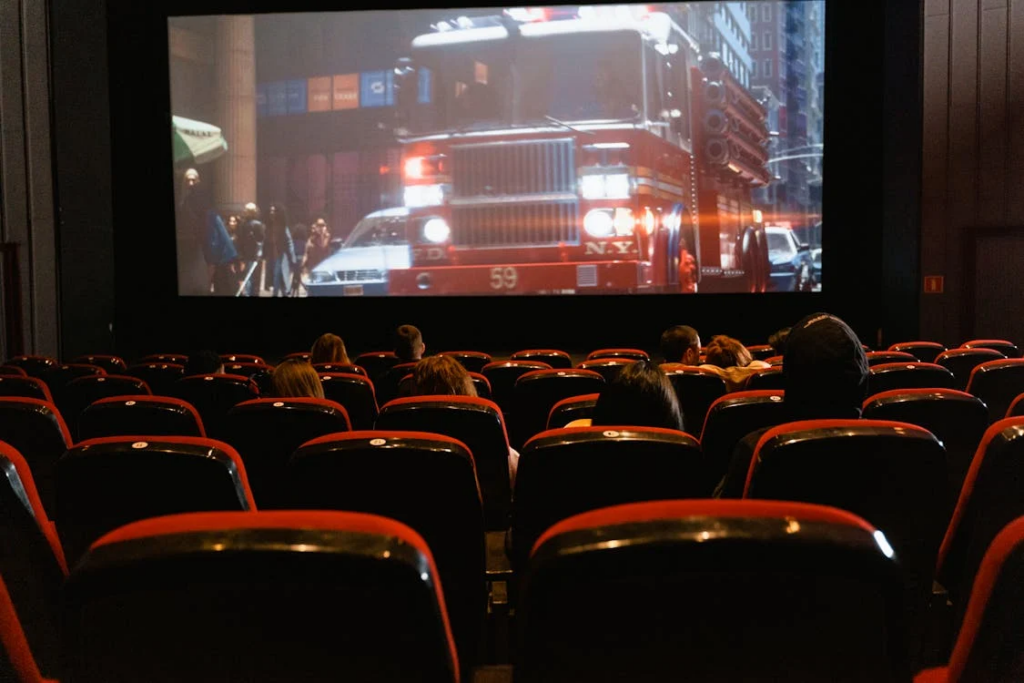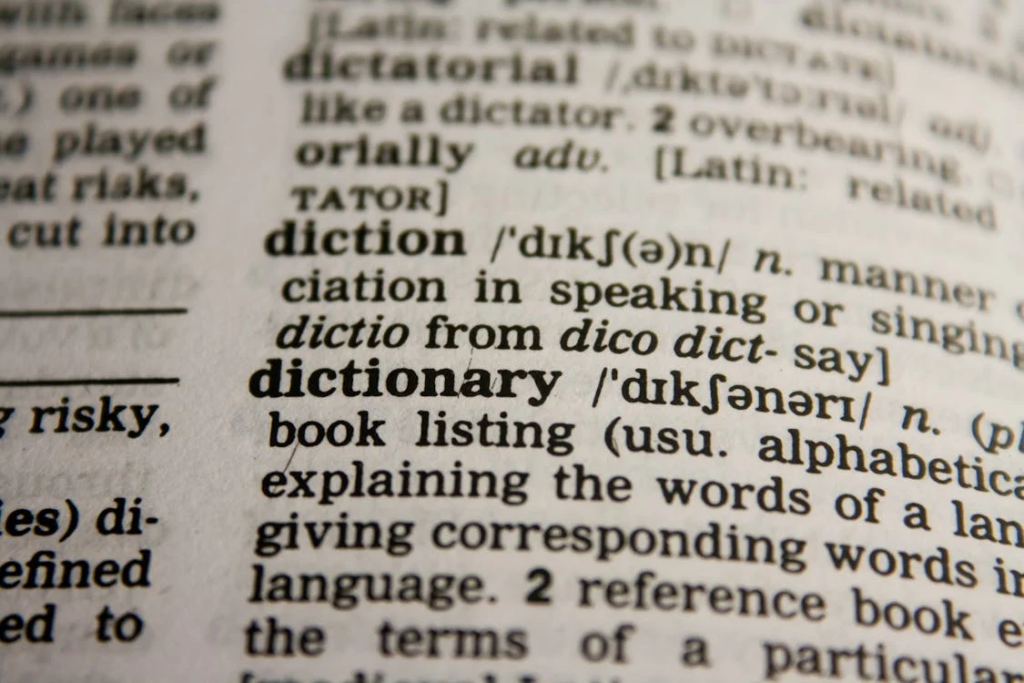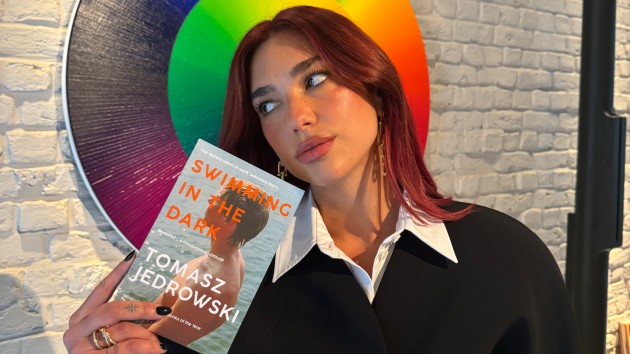"Magazines offer stories, facts, and activities that match kids’ interests and reading levels, helping them learn while having fun."

Finding ways to spark a child’s curiosity and keep them engaged with reading can feel challenging, but the right magazine can make all the difference. Magazines offer stories, facts, and activities that match kids’ interests and reading levels, helping them learn while having fun.
To make it easier for parents to choose, we’ve rounded up eight outstanding magazines that stand out for their quality content and ability to captivate young readers. These publications cover a wide range of topics, from science and art to stories and culture, so there’s something here to inspire every child.
Here are the top eight magazines for students that can turn reading time into an adventure and help kids explore the world around them in exciting new ways.
1. Time (TIME for Kids)

One of the best magazines you can share with your middle or high schooler is TIME for Kids. This publication keeps students interested in what’s happening in the world, with articles that spark curiosity and get them thinking. They’ll find exciting stories about space, like why Uranus and Neptune are called ice giants or the latest plans for Moon missions. There are also engaging pieces about life on Earth, including unique topics such as life in lava tubes, which explore some of the most extreme environments on our planet.
For kids who love animals or enjoy creative projects, the magazine offers plenty of articles to match those interests. Stories about rare creatures and inspiring art features give young readers something new to look forward to each issue. TIME for Kids also includes thoughtful pieces on helping others, encouraging students to think about kindness and ways to contribute to their communities. Articles such as helping others may be the secret to living a happier life, and ideas for acts of service during summer break help motivate kids to take positive action.
2. The Week Junior

Another fantastic option for students is The Week Junior, which calls itself “the magazine kids can’t wait to read.” This engaging weekly publication is designed to spark curiosity in 8- to 14-year-olds, encouraging them to talk about the news of the week with parents, teachers, and friends. It’s a wonderful way to turn everyday conversations into moments of learning and connection.
The Week Junior is helping hundreds of thousands of kids across the country discover the joy of reading, develop their own points of view, and express themselves with clarity. Each issue gives young readers the tools they need to think critically by presenting trusted, objective reporting that’s carefully checked for accuracy by editors who care about literacy.
Every week, kids receive a lively mix of news, fresh ideas, creative activities, challenging puzzles, and thought-provoking debates. These features keep students engaged while opening their eyes to what’s happening in the world, all in a format created just for them.
3. Cricket Media Magazines
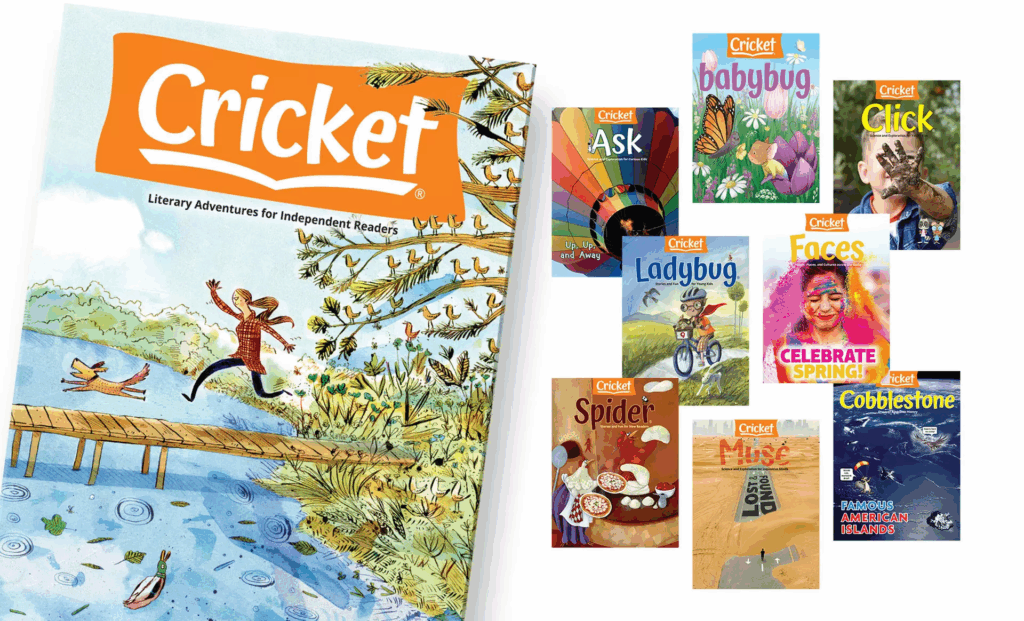
For more than 50 years, Cricket Media’s award-winning magazines have been opening children’s minds and sparking a lasting curiosity about the world. These publications are known for captivating stories, beautiful artwork, and topics that keep kids excited to learn. With age-appropriate magazines for every stage of childhood, Cricket helps children grow into lifelong readers by offering content that is both engaging and thoughtfully crafted.
The Cricket family of magazines is truly unique, with each title tailored to a specific age range. For babies and toddlers ages 0 to 3, Babybug introduces rich vocabulary and enchanting artwork, plus interactive fingerplays, games, and crafts that parents can share with their little ones. For preschoolers ages 3 to 6, Ladybug offers charming stories paired with stunning illustrations, perfect for reading together.
Kids ages 6 to 9 will love Spider, which features richly illustrated stories, poems, folk tales, comics, and activities covering everything from science and history to the arts. For older children ages 9 to 14, Cricket delivers a treasure trove of engaging fiction, nonfiction, and poetry, along with fascinating articles about science, technology, history, the arts, and cultures across the globe.
4. Teen Ink
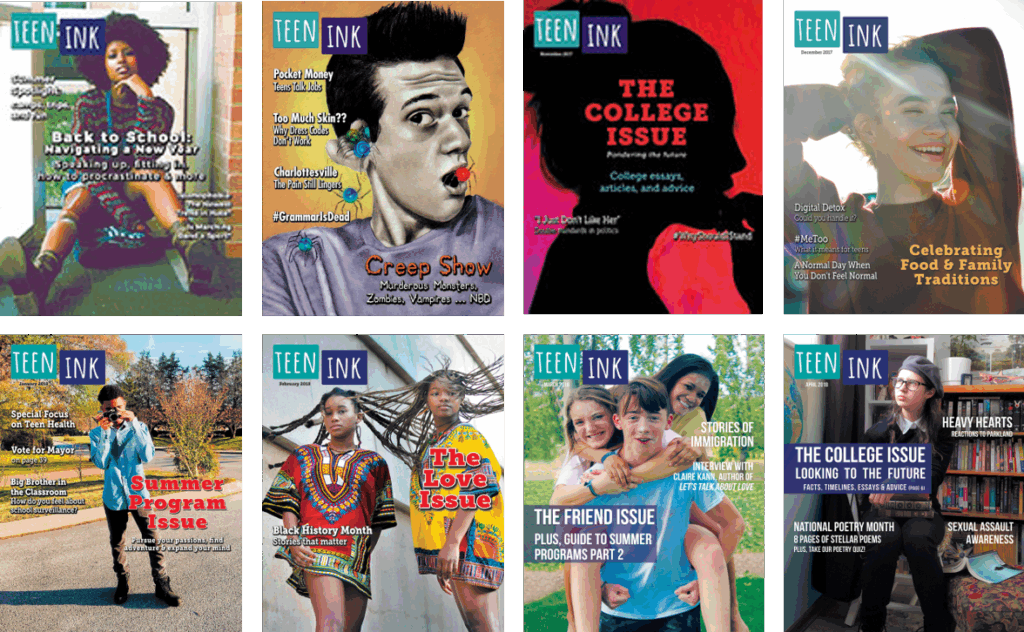
If you’re looking for a place where teens can express themselves and see what other young people are creating, Teen Ink is a wonderful choice. For over 33 years, Teen Ink has been a website and national magazine completely dedicated to teenage writing, art, photography, and open discussions. It’s a space made by teens, for teens. Every article, story, poem, or review comes straight from teenagers around the world, making it a truly unique platform.
Your child can dive into a wide range of topics on the Teen Ink website, with so much to explore that they could spend hours reading. They’ll find original fiction, heartfelt poetry, and reviews covering everything from TV shows, movies, and books to video games, art, photography, and videography. There are even sections where teens share their thoughts on summer programs.
Teen Ink also provides a helpful list of college and university websites, which can be a great starting point as your family begins thinking about the future. Plus, there’s an extensive collection of college essays written by teens themselves, perfect for students looking for inspiration or wondering how others approached their applications.
5. National Geographic Kids

Who doesn’t know National Geographic? For decades, this trusted name has inspired kids and adults alike with amazing stories and breathtaking photos of our world. National Geographic Kids brings that same sense of wonder straight to younger readers, making science, animals, history, and cultures exciting and easy to understand.
If your child loves asking questions or thinking about how the world works, they’ll have a blast with National Geographic Kids’ books and magazines. The How Things Work series answers fun and surprising questions, like what’s inside a lava lamp or how glow sticks light up the night. The WHY series explores all kinds of curious thoughts kids have, such as why zebras have stripes, why rainbows appear, why we have ten fingers, or why people speak different languages.
For those who love to imagine wild scenarios, the What Would Happen? tackle ideas like what life would be like if dinosaurs still roamed the Earth or what might happen if you were pulled into a black hole. And the Weird But True! series is full of amazing facts that will leave kids wide-eyed and eager to share what they’ve learned.
National Geographic Kids is a fantastic way to keep curiosity alive at home. With vibrant pictures and engaging explanations, it helps children learn about the wonders of our world in a way that’s both fun and memorable.
6. Stone Soup

This literary project has been around since 1973 and is entirely written and illustrated by kids, making it a space where young voices truly shine. Stone Soup publishes poems, short stories, artwork, and memoirs, all crafted by children and teens who want to share their creativity with others.
For families interested in getting involved, submitting work is easy. Kids can send in their writing or art through Stone Soup’s website, where they’ll be asked to sign up for a free Submittable account before uploading their creations.
Stone Soup also welcomes donations to support its mission. Contributions help grow educational programs that nurture young talent and expand the community of kids inspired to explore their creativity through writing and art. By subscribing or donating, parents can help keep this unique platform thriving for the next generation of storytellers and artists.
7. Bayard Magazines

Bayard Magazines offer a delightful way for children to explore stories, activities, and fascinating information created with care. Each issue is crafted by writers who work closely with experts like child psychiatrists, scientists, historians, botanists, paleontologists, and doctors. These specialists help make complex subjects easy for kids to understand, turning every magazine into a rich learning experience.
One standout feature of Bayard’s offerings is the Box Magazine collection, which is thoughtfully designed as a reading progression. The stories grow in complexity along with young readers, giving them a sense of achievement as they develop their reading skills.
For younger children, StoryBox is a wonderful introduction to reading. Aimed at preschoolers, each issue feels like a beautiful book-length story that’s perfect for reading aloud. These stories are written and illustrated by talented authors and artists from around the world, making every issue a joy to share.
Another great bonus for parents: all orders come with free delivery within Singapore for the entire subscription period. This makes it easy and convenient to bring these high-quality magazines into your home and nurture your child’s love of stories and discovery.
Check out more articles about our recommendations: 10 Essential Books for Teens: Boosting English Skills & Building Character, Movies to Master English: Curio’s Ultimate Guide to Language Learning Through Film, and The Best Biographical Films to Motivate and Inspire Your Teens


